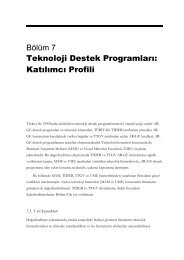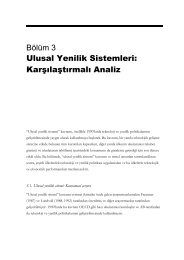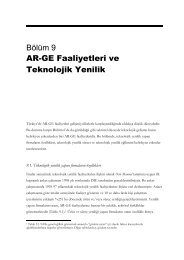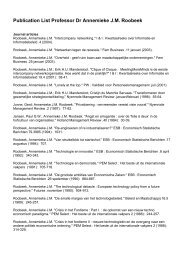Libro Blanco Vol I en Ingles
Libro Blanco Vol I en Ingles
Libro Blanco Vol I en Ingles
Create successful ePaper yourself
Turn your PDF publications into a flip-book with our unique Google optimized e-Paper software.
TOWARDS A NATIONAL INNOVATION STRATEGY FOR COMPETITIVENESSVOLUME 1ACTION RECOMMENDATIONSChile needs to continue growing to attain developm<strong>en</strong>t and the path to achieve it is the Knowledge Economy. Thishowever does not imply turning our back on natural resources, but rather to make the most of this advantage as a solidstarting point to advance, straight away, in the search for other sectors with acquired competitive advantages.The leap to the Knowledge Economy ess<strong>en</strong>tially revolves around innovation, understood as the process of creatingeconomic value through which certain products or production processes, developed around new knowledge or the novelcombination of existing knowledge, are effectively introduced into markets, and as such social life.This new path to developm<strong>en</strong>t <strong>en</strong>sures greater growth. It also offers the possibility of progressing towards greaterequity since its base is the developm<strong>en</strong>t of knowledge, which is an asset whose property can be distributed more equitablythan capital or natural resources, mainly through the formation of our human capital.Chile can set itself this goal after having successfully implem<strong>en</strong>ted the reforms to create an adequate macroeconomic<strong>en</strong>vironm<strong>en</strong>t and a foreign trade ori<strong>en</strong>tation that stimulates its production capacities to the maximum and that highlights th<strong>en</strong>eed for a new step in its developm<strong>en</strong>t.Chile can set itself the great chall<strong>en</strong>ge today of doubling its per capita income over the next 15 years, to the level ofUS$25,000 (2005 Purchasing Power Parity). This implies attaining living standards similar to those of developed countriestoday.This growth must be maintained in the increase of Total Factor Productivity (TFP), based on the dynamic anddiffusion of knowledge, on technological change, on human capital and innovation.- Move from 10 years of average schooling (year 2000) to 12 years by the <strong>en</strong>d of this decade, and 14 at the beginningof the next decade.- Increase <strong>en</strong>rolm<strong>en</strong>t in third-level education from the pres<strong>en</strong>t 43% (of people aged betwe<strong>en</strong> 18 and 24) until nearly80% within 15 years.- Make significant progress in the results achieved by Chilean stud<strong>en</strong>ts in the international PISA evaluations.- Increase R+D sp<strong>en</strong>ding as a perc<strong>en</strong>tage of GDP, rising from 0.68% (year 2004), to 2.32% in the next 15 years. Thisimplies doubling and increasing five-fold the pres<strong>en</strong>t public and private sp<strong>en</strong>ding on R+D respectively as a perc<strong>en</strong>tage ofGDP.56




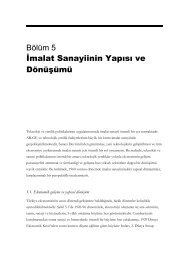
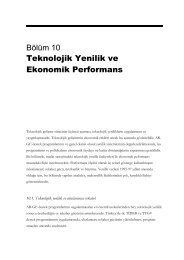

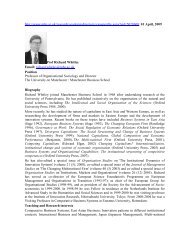

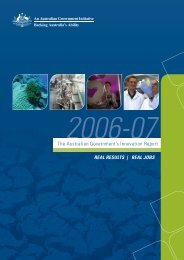
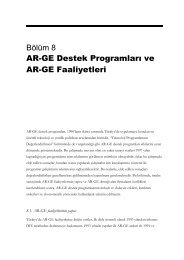
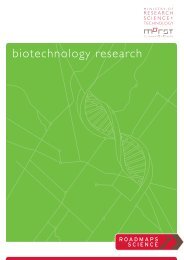
![[Tam] Uygula[ya] - Bilim, Teknoloji ve Ä°novasyon Politikaları TartıÅma ...](https://img.yumpu.com/36820041/1/184x260/tam-uygulaya-bilim-teknoloji-ve-anovasyon-politikalara-tartaama-.jpg?quality=85)
